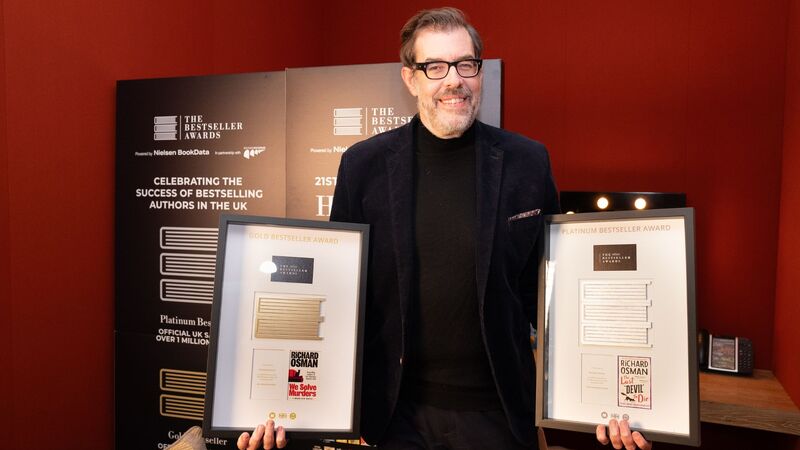You are viewing your 1 free article this month. Login to read more articles.
Brexit prompts UK publishers to look further afield as FBF looms
Publishers have reported buoyant trading on the international stage ahead of this year’s Frankfurt Book Fair, though many are unsettled by the political backdrop, with the UK government sparring with the European Union to avoid a “no-deal” Brexit come March 2019.
Jeremy Trevathan, Pan Macmillan publisher, identified an ongoing trend for publishers doing business on a global scale “both ways”—i.e. as well as selling overseas rights to books by UK authors, publishers in the UK are also actively buying rights to foreign-language books published overseas, and thus expect to publish more literature in translation. Coeditions have also been proving especially lucrative for UK firms, according to Nosy Crow m.d. Kate Wilson and agent Jodie Hodges of United Agents.
Predicting continued growth in the market for illustrated non-fiction, Wilson said the children’s publisher had been having a “brilliant year” both in terms of coeditions and rights selling, with sales up 40% year to date and “publishers all over the world” eager to buy its books. Hodges also said colour non-fiction in translation was doing “particularly well”, alongside two-colour young fiction, and concurred: “It’s been heartening to see plenty of reprint notifications coming through for coeditions.”
Wilson said 60% of Nosy Crow’s sales are derived from outside the UK, adding that Brexit was “a key issue [and] the big unknown... which impacts everything, particularly the value of sterling”. However, she said the publisher was still seeing growth in all markets. Markets in continental Europe seem “more vigorous than they were”, Wilson said, with “real traction” building for many of its books in North America.
Carole Tonkinson, founder and publisher of Bluebird, said UK publishers were “getting slightly saner”, with aggressive acquiring and spending splurges in commercial nonfiction having “died down”. Voicing concerns around Brexit, she said: “I think it would be odd if, after reading [Bank of England governor] Mark Carney’s warnings last week, it didn’t make some people think twice before going wild on a risky acquisition.
The foreign exchange issues are also a worry for European printing, which affects colour publishing. We have to work harder than ever to make our margin.”
Suzanne Baboneau, m.d. of adult publishing at Simon & Schuster said she wasn’t sure the full impact of Brexit has yet hit. She remarked that the market “feels buoyant”, citing “several” seven-figure deals struck in the US recently across fiction and non-fiction, “which can have an impact here”.
Suzanne Baboneau, Jeremy Trevathan and Carole Tonkinson
Leading the line
Although advances are down in markets such as Germany and Italy, according to agent Madeleine Milburn, there are “exceptions for books [publishers] are confident they can make bestsellers” and, in fact, “more cash” appears to be available for lead titles in general, with less funding allocated to midlist titles and straight genre fiction.
The most active countries identified by those The Bookseller spoke to include Poland and the Czech Republic. Trevathan said Pan Macmillan had been striking “plenty of deals” in these countries, while Milburn observed “a lot of activity from Eastern Europe, including Poland and the Czech Republic”, noting that advances are “very competitive in these markets”.
A host of publishers are also keeping a close eye on China, which “continues to grow”. Trevathan called China “an increasingly important and acquisitive market, with significant advances and sales for the right books”. Ed Ripley, UK sales and marketing director of Walker Books, agreed that the market there is “still strong”. He added: “The age group [of books being bought by Chinese publishers] is beginning to skew slightly up, which is interesting. With more competition in that territory, we are being increasingly creative and strategic in the way we sell to that market.”
Struggling markets
Territories having a harder time include Turkey and Brazil. In wake of the former’s financial crisis, the Turkish Lira has slid 40% this year against the US Dollar, prompting the Turkish Publishers Association to ask the international book trade to abandon upfront advance payments when selling licences to Turkish publishers, or accept low advance payments. Furthermore, to show “solidarity with Turkish publishers”, it has requested discounts of 30%–40% on offers made before the crisis.
Brazil’s publishers, meanwhile, have been struggling to secure payment from retailers within the country, causing UK publishers to question how much business they will be able to do during the fair. “Brazilan publishers are really struggling and some contracts are not being fulfilled. There are definitely going to be far fewer [of them] at this fair, as they have cut back on numbers,” said Trevathan. “And in Turkey, the currency crisis and political landscape are having a major impact on publishing and on the media.”
Pundits across the industry, meanwhile, observed that the tussle for audio rights continues unabated following the market’s recent growth. “Competition for audio rights has escalated since last year, as each and every publisher seeks to acquire audio rights,” said Baboneau, adding: “It has become a vital part of any negotiation at acquisition stage.”

















